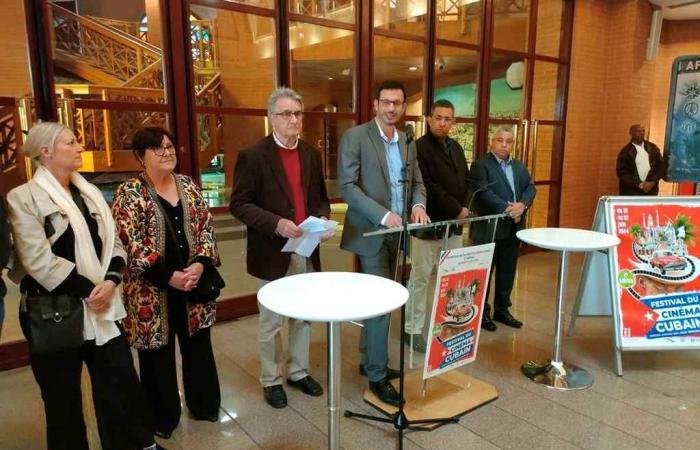In the installation of the event scheduled until June 22 with seven films in theaters, the mayor of Vitry-sur-Seine, Pierre Bell-Lloch, celebrated the opportunity to discover Cuban cinema again in the colorful town and the presence of films that are being screened for the first time in France.
The mayor urged his countrymen to approach the history, culture and society of the island through the seventh art during these days.
Bell-Lloch took advantage of his words to express solidarity with Cuba in the face of the economic, commercial and financial blockade imposed on it by the United States, a policy that he described as unfair.
We believe in the right of people to freedom and to choose their destiny, stressed the mayor, who praised the help that the Antillean nation provides to other countries, despite the devastating impact of the blockade.
Likewise, he thanked the general secretary of the Cuban Workers’ Union (CTC), Ulises Guilarte de Nacimiento, and the Cuban ambassador to France, Otto Vaillant, for attending the inauguration of the second Vitry-sur-Seine Cuban Film Festival.
For his part, the festival coordinator, Miguel Quintero, created the public’s expectation around each of the feature films on display, by offering a review of them and highlighting that they help to learn about aspects of the island and its people.
The event began with the screening tonight at the Mayor’s Office of the Italian-Cuban film El Soñador (2004), by Angelo Rizzo, dedicated to the national pastime of the largest of the Antilles: baseball.
Also presented at the cinema will be Les 3 Cinés Robespierre, Ciudad en Rojo (2008), directed by Rebeca Chávez; Why are my friends crying? (2017), by Magda González; Fátima or the park of fraternity (2014), by Jorge Perugorría; Habanastation (2011), by Ian Padrón; Waiting List (2000), by Juan Carlos Tabío, and Juan de los Muertos (2011), by Alejandro Brugués.
On behalf of Cuba Coopération France (CubaCoop), the association from which the idea of this festival was born, the secretary of its Committee in Vitry-sur-Seine, Mireille Joly, considered it an honor to host the film exhibition.
Joly highlighted the value of culture as an instrument of emancipation and the relevance that Cuba gives it, along with health and education.
We ratify our determination to divulge the truth about an island attacked by an illegal blockade, she stated at the ceremony, in which she was accompanied by the president of CubaCoop, Víctor Fernández, and vice president Manuel Pascual.
In brief words, Ambassador Vaillant thanked all the authorities, people and organizations that made the festival possible.
The day began with the installation of the photographic exhibition “Juanita & Chan Chan”, by the artist Avren, who shares snapshots captured during a cultural and solidarity trip to the Antillean nation in the fall of 2023.
jcm/wmr






